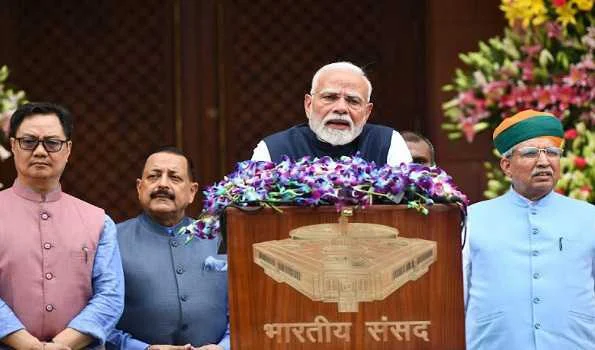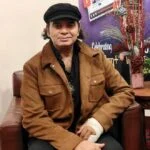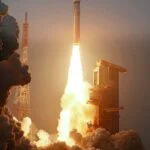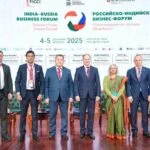New Delhi, July 21 . Ahead of the commencement of the monsoon session of Parliament, Prime Minister Narendra Modi today highlighted a broad spectrum of national developments ranging from Operation Sindoor, agriculture and space exploration to defence capability and digital transformation.
Modi also called on all members of Parliament to speak about the country’s pride in one voice during the session. “While there may be differences on party lines, there must be unity of intent in matters of national interest,” he stated and expressed hope that the session would be marked by high-quality debates and cooperation on legislation aimed at boosting development, empowering citizens, and advancing India’s progress.
Describing the monsoon session as a “celebration of India’s victories,” Modi praised the success of Operation Sindoor, in which the Indian Army neutralised high-value targets at enemy bases within 22 minutes. He said this operation reflected the readiness and strength of India’s armed forces and underscored the increasing global interest in Indian-made defence systems.
“World leaders have expressed their admiration for India’s indigenously developed military hardware,” he noted, adding that defence manufacturing would further empower youth through employment and innovation.
Recalling the tragic killings in Pahalgam, the Prime Minister said that political parties and state representatives had risen above partisan considerations to launch a diplomatic campaign that successfully exposed Pakistan’s role as a state sponsor of terrorism. He expressed appreciation for those involved, saying their efforts helped shape international understanding of India’s position on terrorism.
Turning to internal security, the Prime Minister said that the geographical spread of Naxalism and Maoism is shrinking rapidly. He asserted that “hundreds of districts are now breathing free,” crediting the security forces and Constitution for replacing weapons with democratic processes. Former Red Corridor regions, he said, are being reimagined as “Green Growth Zones,” marking a definitive shift towards development.
Invoking the symbolic significance of the monsoon as a harbinger of “innovation and renewal,” Modi noted that favourable weather conditions and a threefold rise in water reservoir levels, compared to the decadal average, promises well for agriculture and household economic stability. “Rainfall plays a vital role not just in the rural economy, but in the nation’s economic architecture,” he observed.
The Prime Minister also hailed the recent unfurling of the Indian tricolour at the International Space Station (I.) as a “historic moment” and a source of national pride. Describing it as a symbol of the country’s growing scientific ambition, he said the event has generated renewed enthusiasm for science and technology among youth and will serve as an inspiration for future space endeavours.
Highlighting India’s economic turnaround since 2014, Modi recalled how the country was previously grouped among the fragile five economies. “Today, India is knocking on the doors of being the third-largest economy globally,” he said, pointing to the elevation of 25 crore people from poverty and a sharp drop in inflation from double digits to around 2 percent. He described the combination of low inflation and high growth as indicative of a robust and resilient economy.
In his remarks, the Prime Minister highlighted India’s advancements in the digital sector, particularly the success of Digital India and the Unified Payments Interface (UPI). Citing global recognition of India’s digital infrastructure, he stated that the country now leads the world in real-time digital transactions.
Modi also cited reports from international organisations to underline India’s progress in social welfare and healthcare. He noted that over 90 crore Indians are now covered under social security, according to the International Labour Organization, and pointed out by the World Health Organization’s declaration of India as trachoma-free as a key milestone in public health.
. . PRS










